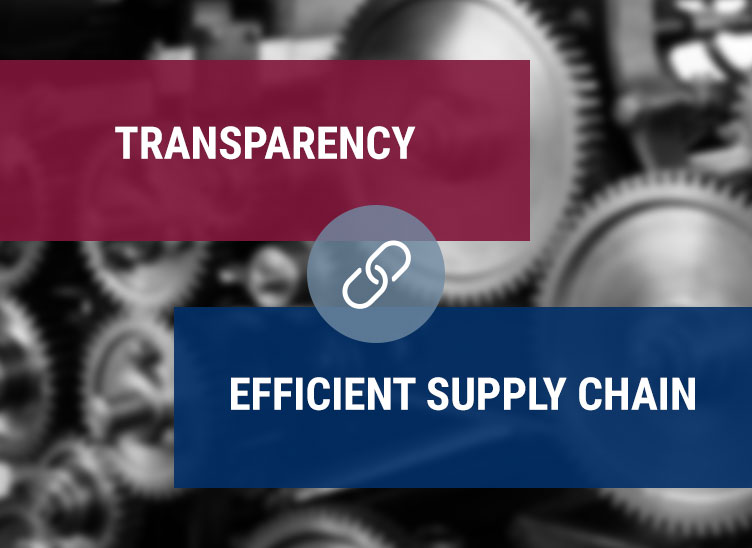
The Link Between Transparency and an Efficient Supply Chain
Consumers have become increasingly aware of how businesses work, not just what products they make and services they offer. The number of customers who care about a brand’s impact on the environment are growing every year. Cone Communication did a survey in 2015 that showed 81 percent of global consumers care about transparency, or how a company handles their corporate social responsibility and consider it in their buying choices.
For companies, this is a big number and reason to consider their own choices in buying and production. Sourcing materials or resources with any negative impact will eventually be uncovered and customers will find out and directly influence a company’s performance. Because of this, more companies are changing their supply chains to be more transparent, which also makes them more efficient.
The Role of Transparency
Some supply chains are more transparent than others naturally. Food chains are often transparent so that consumers know what they are putting in their bodies. A transparent supply chain in this industry helps provide a more efficient way to notify retailers and the public of recalls and contaminated foods.
Other industries, like construction and manufacturing, don’t naturally have a transparent supply chain. While this may have been an area consumers cared less about in the past, that is changing. With a more informed society, consumers are caring more about their health and the products around them. Instead of knowing that the suppliers are reliable, people like to know that the workers are treated well on the job and the conditions are fair.
Consumers who care about a company’s social responsibility will find out this information, but there is a bigger benefit for companies making themselves more transparent. When customers find out who has a greater sense of social responsibility, they feel loyalty to that business. Companies who make their supply chain more transparent will focus on improving these aspects and gain a more loyal base. With a higher public perception, they can gain more business.
The Benefits of Transparency
Manufacturers, companies, distributors, vendors, and customers all benefit from transparency. More than just creating a good public profile, each can gain the following benefits:
- Reduces risk: When every part of the supply chain is traceable, risk is reduced almost entirely. It helps provide oversight for everyone in the chain. If there is a recall in any industry, being able to follow the products to where they ended up is valuable to keeping the public safe.
- Keeps everyone informed: Each person in the chain is more informed on where the products are assembled, who packaged them, how it was transported and stored. For a product like food, the benefits of this are obvious, but it also matters in other industries. Aerospace, architecture, and engineering have products that require vigorous testing for quality and reliability. The proper care of machinery is vital to performing accurately.
- Greater efficiency: With a more transparent supply chain, there is more information available. This helps identify problem areas where processes are slowed. If there is an area where things bottleneck in production, it can be solved and improved. Companies might also find steps that are unnecessary and can be removed entirely, speeding up the entire process.
Increasing Transparency
Companies often need help understanding how to increase the transparency in their supply chain. What tools are available to help and how do you implement them? When a product goes through so many steps, it can feel overwhelming to know where to start.
Thanks to the tech industry, there are many software programs and applications that aid in tracking. Data is more efficient to collect with these systems and are not hard to put in place. Putting a small tracker on a shipment helps track location, temperature, and conditions.
Blockchain is another system that helps to directly connect suppliers and distributors. It provides a secure, decentralized platform that helps eliminate excess.
Transparency provides more collaboration between partners, vendors, and suppliers. They work together with more efficiency and have more communication, speeding up processes and solving problems. Consumers can see where their products and services are coming from and purchase with more loyalty, knowing they are doing their part to be socially responsible. Transparency really is the key to a more efficient supply chain and a successful business.
